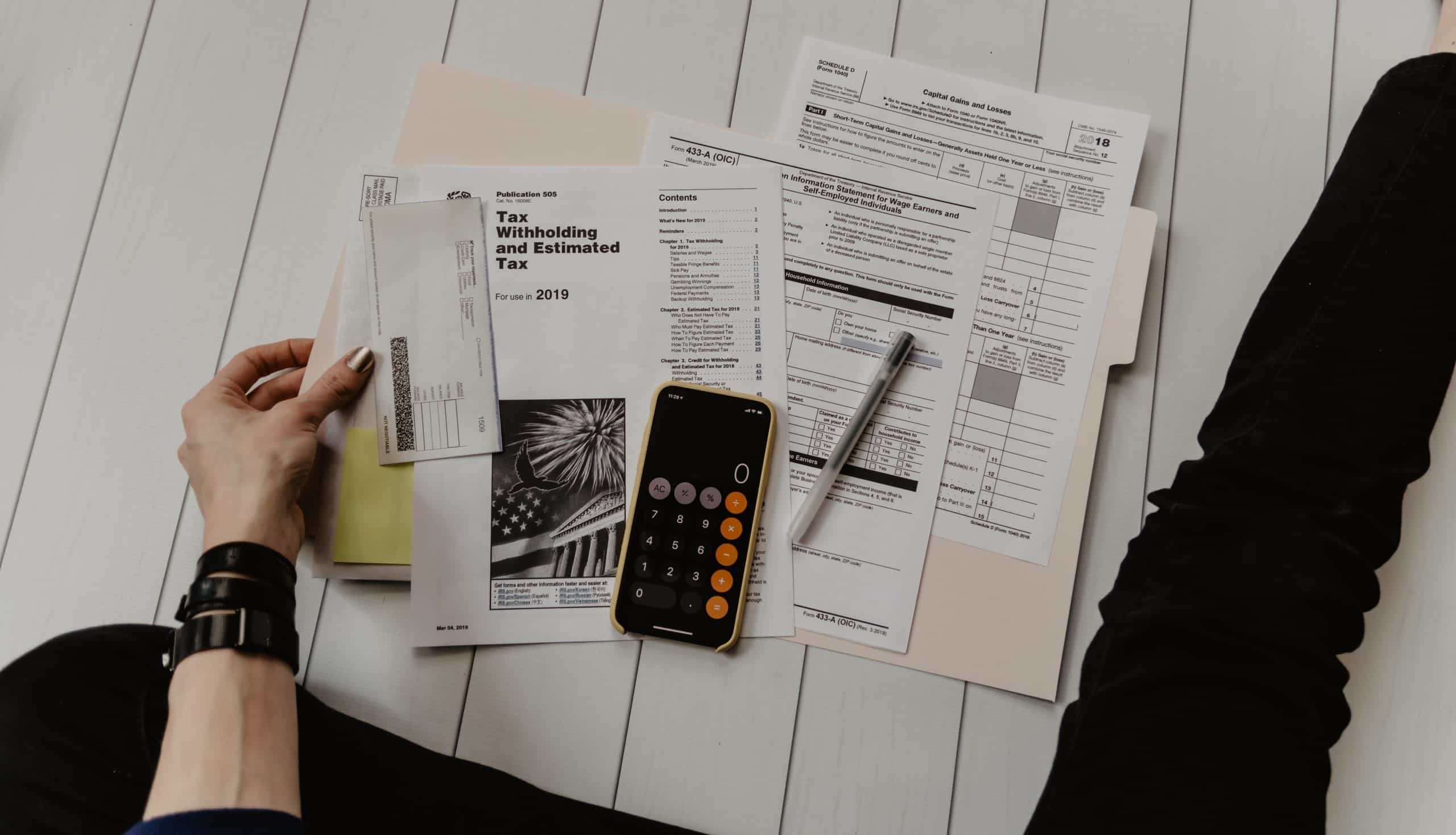When you stand out there looking at how systems are well organized and people receive necessary social services efficiently, don’t be cheated to think that funding comes easily. Denmark has multiple layers of taxes that redistribute resources for everyone. The government of Denmark acts like the real big brother who sits up there and makes sure that every diligent worker in the country gets decent living.
As a resident in Denmark, you will likely be unsure which taxes are levied on you whenever you earn or buy something. It may take you a long time or not even manage at all to really internalize your tax obligations in Denmark. If you are someone who selfishly wants to have a good pay slip balance after a long working month then Denmark is not a place for you. Unless you value the strong social system in Denmark, you may get this feeling that the government is taking just too much from you in taxes to support the system.
Corporate Taxes in Denmark
If you are intending to establish a company in Denmark, corporate taxes at the rate of 22% will apply. Nonetheless, the corporate taxes depend on whether the company is domiciled in Denmark or elsewhere. A resident company in Denmark pays full taxation since all its income is deemed to be generated from within the country. Companies that are registered elsewhere but with operations in Denmark are subject to limited corporate tax.
Income Tax in Denmark
Anybody who has signed up for and is working in Denmark must pay taxes to the government through the tax agency called Skattestyrelsen. Danish employers are very truthful and honest with the government which means that they will not engage in the monkey business of engaging you in “black jobs”-a term used in referring to working without approval of residence and taxation.
You and the employer have a duty to the government to at all times ensure that your income is accurately captured by the tax authority. Tax cheating is highly prohibited in Denmark and will attract a jail sentence, a fine or both depending on the cumulative amount of the tax evaded.
There are no specific income tax rates applied but it depends on prescribed brackets. In short, people do not pay tax at the same rates. Danish Skat uses progressive tax brackets in which people with higher income pay more, medium income earners pay lesser and very low earners are exempted from paying taxes.
Knowing which tax payment category you fall in at any given time is good because it prevents you from being held for tax cheating .
Tax returns in Denmark
Anyone who has lived in and paid taxes in Denmark will agree that the taxes are high, especially for people who want to accumulate quick capital. However, the transparency in which taxes are administered makes it attractive. The tax return system in Denmark is one that is appreciated by every taxpayer. Not later than 1 July of the end of a tax year (31 December), the tax authority requires individual taxpayers to file tax returns. The Danish tax authority will give tax cards to taxpayers based on their assessed incomes for the previous income year. It is important to have a tax card because without any, the tax authority withholds up to 55% of your income in individual income tax. Following the end of a tax year and assessment of your tax contribution (tax filing), the tax authority determines your tax bracket and applies the relevant rates. Any overpaid tax is then refunded to you plus a non-taxable 0% interest accrued from it.
Danish Tax Card
Anyone who works and gets paid in Denmark must pay taxes. The tax authority obligates employers and employees to provide true information about what someone earns every year round for the purposes of calculating their taxable income and knowing in which tax group to place them. If you are moving to Denmark on a mission to make quick money and cheat the system, the antidote is that it will not be possible.
Some people may mistakenly think that a Danish tax card is something like a credit or debit card which someone swipes on a machine to make tax deductions. This is not the case as a tax card is just like a profile or information detailing your tax records. It is a digital document which enlists the tax rates and deductions applied to you.
Benefits of having a Tax Card in Denmark
Anyone with an income or property in Denmark has a personal responsibility of reporting it to the tax authority. Declaring the income does not necessarily mean that a tax will be deducted from you altogether. The actual tax levied on you will depend on specific conditions such as whether you have an active bank loan interest to pay, ownership of the property, the level of income and many more. A tax card protects you from fines, criminal procedures and financial losses in cases where the government realizes you are not providing such information.
Where to get a Danish Tax Card
As soon as you get registered with a CPR in Denmark and have an intention of working or earning, you must have a priority for taxation. You will have to pay income tax and make accurate declarations. Anyways, any employer in Denmark will first ask you to have a tax card which must be provided to them. The tax card is linked to your CPR which means that every employer will see it. Everyone who has a legal residence in Denmark is required and is eligible to get a Danish tax card for the purposes of processing their revenue contributions to the government. It is actually a moral obligation to pay taxes in Denmark because you will benefit from it in multiple ways including good roads, functioning healthcare, unemployment benefits, child support and many more. The tax card is issued to all legal residents in Denmark by the Danish tax authority SKAT upon arrival in Denmark.
For someone who is yet to get a tax card, it is important to call skat directly and tell them what income you expect to get per month and the anticipated period of employment. From that, they will register you in the tax system. While you can register for tax card at any time, it is advisable that you do so within two months to taking up your work. To reduce backlog and tax administration red tapes, the Danish tax authority likes to process applications for tax cards submitted not earlier than 60 days before one starts working in Denmark.
Requirements for Getting a Danish Tax Card
Generally, the process of applying for and getting a Danish tax card is easy and straightforward. The tax officers will always support you as a newcomer in Denmark about everything you may need to know. A call, email or appointment with the tax authority will give you a great opportunity to get all the necessary information.
To get your tax card processed without glitches or any delays whatsoever, it works better that you have all the required documents in place. The documents basically include:
- A copy of your signed employment contract with all details of the employer, terms and conditions of employment.
- A copy of your passport or national identification card (both the front and back of these must be submitted even if there is no written information at the back).
- A proof of residence in Denmark (a Danish residence and work permit) will work in this case.
- A married person with family in Denmark will need to provide a marriage certificate.
Where Danish Tax Agency (Skattestyrelsen) gets your income information
There is a high level of transparency about income declarations in Denmark. It is not possible for you to get away with tax cheating in Denmark because there are set out ways for the tax authority to get information. For instance, the fact that cash payments of salary is prohibited in Denmark makes it mandatory that the employer will have to send your payment to a bank account. Actually, the payment date is almost the same for all employees in Denmark. Just to mention, you will walk into a supermarket and see everyone with full shopping baskets on pay day because all payrolls are processed and paid almost on the same day across the board.
The tax agency in Denmark will get your income information from different sources including but not limited to:
Employers-they will at all times provide truthful declaration of your income information whenever they pay you. Hefty fines or even deregistration can be done for employers who aid in tax cheating.
Banks- All your payments in Denmark will have to go through the banking system. You must open a bank account where the employer makes payment. From your bank transactions, it will be evident how much you earn in salary.
Unemployment funds and unions– they will always update the tax authority on your membership payments.
This wide network of information sources for the tax authority makes it easy for you to meet your obligations and discourages people from eating from the system unfairly.
Remember, it is these taxes that the government relies on to provide child money, development, health and many more public services. Someone who has lived in Denmark and benefited from its social system will be very reluctant to engage in tax cheating, although some will still do it.
Primary Tax Card in Denmark
I bet you it will be confusing when your employer asks you whether to use a primary or secondary tax card. The way these cards operate may be confusing to someone who is getting this for the first time. A primary tax card in Denmark is the card which is used by employers or the government education support for students called SU. The primary tax card can only be used by one employer. It is therefore advisable that the primary tax card be used by the employer where you get the highest amount in salary.
The tax card has various details including tax withholding rate, tax free deductions, and allowances. If you are tempted to allow more than two employers to use your primary card, this leads to you paying little tax which translates into an outstanding tax for the next year.
Secondary tax card in Denmark
Your secondary card is what to use with multiple sources of income. If you have one employer, receive a state education grant (SU) or both, here is where you will use your secondary tax card. The secondary tax card has limited information. It only states your withholding rate. Therefore, at any time your employers pay you on a secondary tax card, a tax is withheld on the whole amount. The held tax does not mean it will be lost, at the time of tax return, the excess tax will actually be returned to you with any interests accrued.




